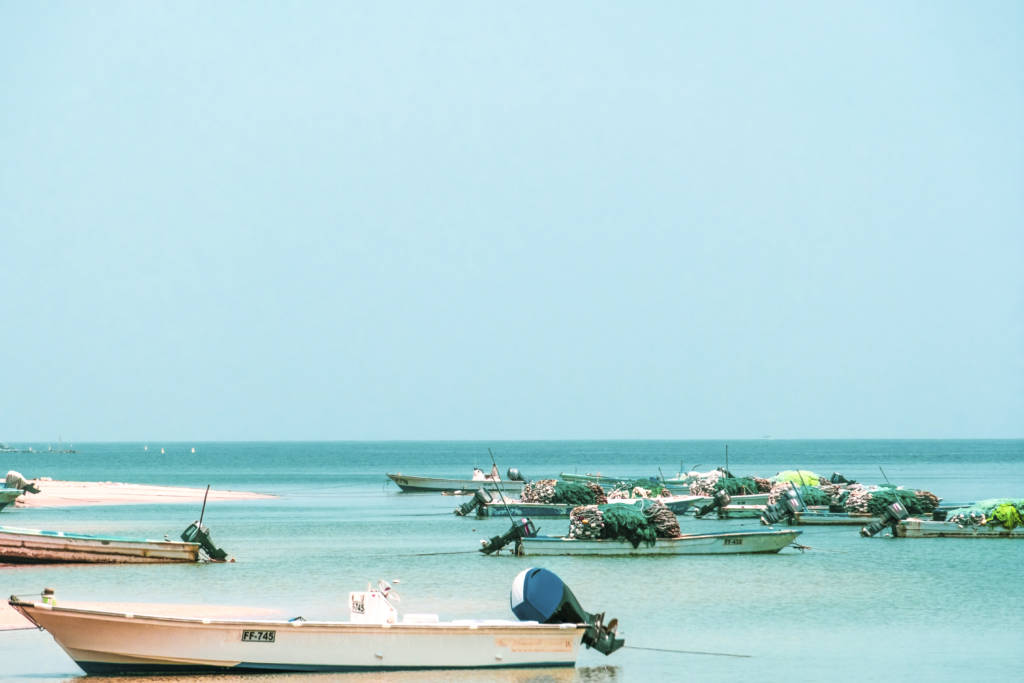The culture and history of the UAE are deeply embedded with the sea, a story of love and respect that stretches back centuries. In a desert country with little rainfall for agriculture, the maritime environment was essential for the economy of Emirati ancestors; at that time, fishing, pearl diving and sea trade were the primary sources of people lives.
The sea has shaped the social and cultural heritage in the UAE. For generations, the coastal environment had been a gateway to the outside world.
A rich maritime industry has developed in Dubai since early times. Centuries ago the Creek was a natural harbor connecting the country to the world by introducing foreign commodities and cultural influences.
From pearl diving to dhow building, imports to exports, the seeds of modern UAE are closely related to the interplay between the sea and the desert. Abu Dhabi coastline with tens of natural islands and small ports was the boarding area for brave mariners who travelled as far away as East Africa to trade in pearls, dates and mangrove wood. Before the oil era, the largest manufacturing industry in the region was boat-building. Generations of skilled artisans had worked in industrious boat yards turning planks of wood into gorgeous and sturdy traditional dhows. Keeping the age-old tradition of seamanship alive, this ancient boat-building legacy is carried on till today and these traditional sailing vessels continue to cut through the seas in luxurious dhow cruises for tourists and in annual races, which commemorates the times when pearl diving and fishing fleet bobbed along on the sparkling waves for food hunts.
For millennia the Emirati has been at one with the sea; today the clear and warm blue waters of the Gulf provide a wide range of watersports activities and world-class marine leisure facilities.
It is important to mention that the greatest and most memorable Arab navigator of all time is Ahmed ibn Majed. Born in the early 1430s in Julfar, Ras Al Khaimah now, Ibn Majed guided Vasco da Gama to find his way from the east coast of Africa to India around the Cape of Good Hope. Many mariners from the UAE, have navigated through the same routes using the knowledge gained from their ancestors who used these routes for hundreds of years. My father started really young on his voyages and picked up few languages like Persian, Urdu, Swahili, and English as he grew traveling between the main trade ports.
He became a ship captain for the longest time of his life, then after discovery of oil, many ship captains were given governmental jobs serving in the Coast Guard. That generation had an unconditional love for the sea. Their whole lives depended on it and it was a symbol of bravery in many of the traditional proverbs. My memories of my father revolved around his passion to wake up before dawn to go on his fishing expeditions and bring back what would be on the lunch of the menu that day. I would wake up in the morning for school at the same time he was coming back and he would always bring something strange for me.
A puffer fish, a sea sponge, a starfish and an oyster that might hold the biggest pearl in the world; or that what I hoped for.

